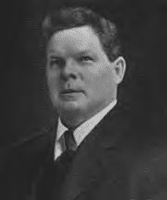May 11, 1926
Most of the way down the narrow road of this life, we have to travel alone. And a great deal of the way is passed in hunger.
But there are compensations, and these light the way and perfume the very air—even when it is heavy with the mist of yesterday's rain.
God has sprinkled beauty in this world in lavish fashion. The hills and moutains, the streams that clatter over their beds of white stones with a song upon their rippling lips, the music that leaps from the throats of hundreds of different varieties of birds, the matchless flowers in their gorgeous gowns and scented as only God could perfume them, and then your friends—few, perhaps—but many so genuine and true. And to a few, "love's brief immortality."
Everywhere compensations for our losses. And so often we dwell upon our losses without measuring our gains which may far outweight them.
So I would say: Believe in yourself. Look life in the eye. Smile at its hurts. Do not cringe under the lash.
William De Morgan was past 60 before his first novel was published, but when he died many years later he was one of the most noted writers in the world. Goethe finished "Faust" at the age of 80. Henry Ford was unknown in the world of businesses at 40. Col. W. R. Nelson was 40 when he started his Kansas City Star which has recently been appraised as worth more than six millions of dollars. Peary was around 50 years of age when he finally planted the stars and stripes at the North Pole.
These men had to believe in themselves. If they hadn't no one else ever would have known their remarkable abilities.
We sleep to wake.
Believe in yourself.









